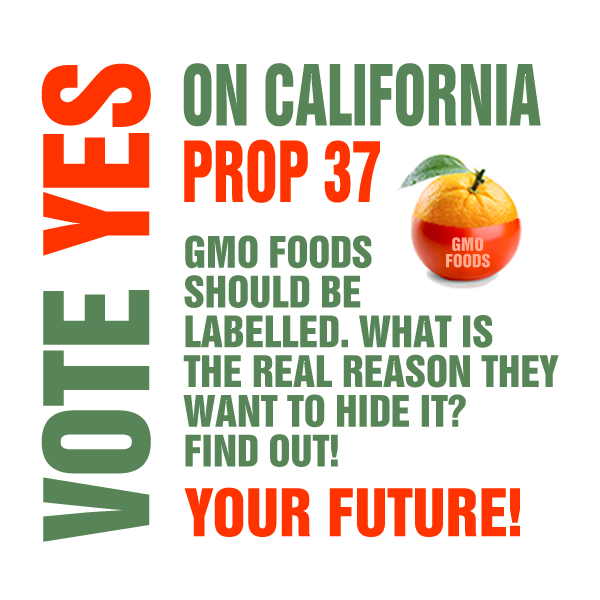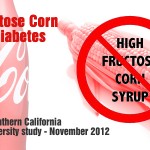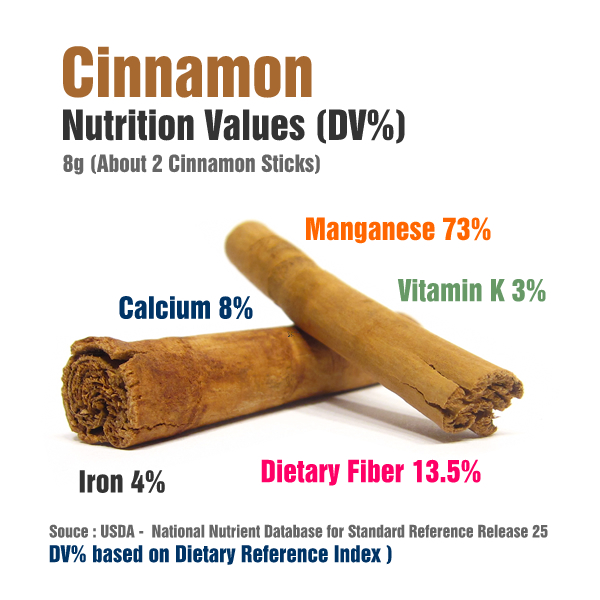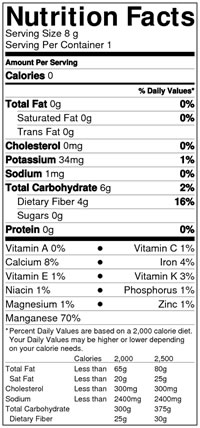 Please Vote YES on Prop 37.Here at Cinnamonvogue.com our mission is not only to promote Cinnamon, but also promote healthy food choices. California Prop 37 and $41-45 million spent by big corporation’s to stop the GMO labeling requirements has brought to attention many issues. Fortunately a small company called getUnreal has proved that we don’t have to accept the status core. They have proved that you can actually make a healthy candy for the same price. Without corn syrup, without artificial flavor, without hydrogenated oils, without preservatives, without GMOs, less sugar, more protein and fiber. Many of you will know that we designed out Ceylon Cinnamon using real Cinnamon and without artificial or natural flavors.
Please Vote YES on Prop 37.Here at Cinnamonvogue.com our mission is not only to promote Cinnamon, but also promote healthy food choices. California Prop 37 and $41-45 million spent by big corporation’s to stop the GMO labeling requirements has brought to attention many issues. Fortunately a small company called getUnreal has proved that we don’t have to accept the status core. They have proved that you can actually make a healthy candy for the same price. Without corn syrup, without artificial flavor, without hydrogenated oils, without preservatives, without GMOs, less sugar, more protein and fiber. Many of you will know that we designed out Ceylon Cinnamon using real Cinnamon and without artificial or natural flavors.
What is unusual is that all the newspapers are saying NO to Prop 37. Most of the major food companies that we love like Whole Foods, Trader Joe’s a have been silent according to Cornucopia. What gives? Are the newspapers being threatened with loss of advertising? Are Trader Joe’s and Whole Foods scared of going against the big manufactures? Thanks to mommy greenest I discovered that our even our sugar is GMO. It comes from beet instead of sugar cane. Darn it! And many of the top organic brands like Kashi are against prop 37. Wow. Why are they so violently against GMO labeling? And the relentless advertising makes no sense and is pretty vague on the details. Europe apparently has these GMO labeling requirements without any huge cost increases.
But I am happy that getunreal is making progress. I take my hat off to Tom Brady, Gisele Bundchen, Matt Damon, John Legend, and Jack Dorsey for making a contribution. Visit the unreal site and think how you can make better food choices. Better still, buy some getunreal candy and only getunreal candy.
But let’s not be complete fools. Let’s take a complete look at the proposed legislation in detail. As put forward by the state of California. I have made rebuttal arguments in orange.
PROPOSITION 37
OFFICIAL TITLE AND SUMMARY PREPARED BY THE ATTORNEY GENERALGENETICALLY ENGINEERED FOODS. LABELING. INITIATIVE STATUTE.
Requires labeling on raw or processed food offered for sale to consumers if made from plants or animals with genetic material changed in specified ways.
Prohibits labeling or advertising such food, or other processed food, as “natural.”
Exempts foods that are: certified organic; unintentionally produced with genetically engineered material; made from animals fed or injected with genetically engineered material but not genetically engineered themselves; processed with or containing only small amounts of genetically engineered ingredients; administered for treatment of medical conditions; sold for immediate consumption such as in a restaurant; or alcoholic beverages.
Summary of Legislative Analyst’s Estimate of Net State and Local Government Fiscal Impact:
Increased annual state costs ranging from a few hundred thousand dollars to over $1 million to regulate the labeling of genetically engineered foods.
Potential, but likely not significant, costs to state and local governments due to litigation resulting from possible violations of the requirements of this measure. Some of these costs would be supported by court filing fees that the parties involved in each legal case would be required to pay under existing law.
ANALYSIS BY THE LEGISLATIVE ANALYST
BACKGROUND
Genetically Engineered (GE) Foods. Genetic engineering is the process of changing the genetic material of a living organism to produce some desired change in that organism’s characteristics. This process is often used to develop new plant and animal varieties that are later used as sources of foods, referred to as GE foods. For example, genetic engineering is often used to improve a plant’s resistance to pests or to allow a plant to withstand the use of pesticides. Some of the most common GE crops include varieties of corn and soybeans. In 2011, 88 percent of all corn and 94 percent of all soybeans produced in the U.S. were grown from GE seeds. Other common GE crops include alfalfa, canola, cotton, papaya, sugar beets, and zucchini. In addition, GE crops are used to make food ingredients (such as high fructose corn syrup) that are often included in processed foods (meaning foods that are not raw agriculture crops). According to some estimates, 40 percent to 70 percent of food products sold in grocery stores in California contain some GE ingredients.
Federal Regulation. Federal law does not specifically require the regulation of GE foods. However, the U.S. Department of Agriculture currently places some restrictions on the use of GE crops that are shown to cause harm to other plants. In addition, the U.S. Food and Drug Administration is responsible for ensuring that most foods (regardless of whether they are genetically engineered) and food additives are safe and properly labeled.
State Regulation. Under existing state law, California agencies are not specifically required to regulate GE foods. However, the Department of Public Health (DPH) is responsible for regulating the safety and labeling of most foods.
PROPOSAL
This measure makes several changes to state law to explicitly require the regulation of GE foods. Specifically, it
(1) requires that most GE foods sold be properly labeled,
(2) requires DPH to regulate the labeling of such foods, and
(3) allows individuals to sue food manufacturers who violate the measure’s labeling provisions.
Labeling of Foods. This measure requires that GE foods sold at retail in the state be clearly labeled as genetically engineered. Specifically, the measure requires that raw foods (such as fruits and vegetables) produced entirely or in part through genetic engineering be labeled with the words “Genetically
Engineered” on the front package or label. If the item is not separately packaged or does not have a label, these words must appear on the shelf or bin where the item is displayed for sale.
The measure also requires that processed foods produced entirely or in part through genetic engineering be labeled with the words “Partially Produced with Genetic Engineering” or “May be Partially Produced with Genetic Engineering.”
Retailers (such as grocery stores) would be primarily responsible for complying with the measure by ensuring that their food products are correctly labeled. Products that are labeled as GE would be in compliance.
For each product that is not labeled as GE, a retailer generally must be able to document why that product is exempt from labeling. There are two main ways in which a retailer could document that a product is exempt: (1) by obtaining a sworn statement from the provider of the product (such as a wholesaler) indicating that the product has not been intentionally or knowingly genetically engineered or (2) by receiving independent certification that the product does not contain GE ingredients.
Other entities throughout the food supply chain (such as farmers and food manufacturers) may also be responsible for maintaining these records.
The measure also excludes certain food products from the above labeling requirements. For example, alcoholic beverages, organic foods, and restaurant food and other prepared foods intended to be eaten immediately would not have to be labeled. Animal products—such as beef or chicken—that were not directly produced through genetic engineering would also be exempted, regardless of whether the animal had been fed GE crops.
In addition, the measure prohibits the use of terms such as “natural,” “naturally made,” “naturally grown,” and “all natural” in the labeling and advertising of GE foods. Given the way the measure is written, there is a possibility that these restrictions would be interpreted by the courts to apply to some processed foods regardless of whether they are genetically engineered.
State Regulation. The labeling requirements for GE foods under this measure would be regulated by DPH as part of its existing responsibility to regulate the safety and labeling of foods. The measure allows the department to adopt regulations that it determines are necessary to carry out the measure. For example, DPH would need to develop regulations that describe the sampling procedures for determining whether foods contain GE ingredients.
Litigation to Enforce the Measure. Violations of the measure could be prosecuted by state, local, or private parties. It allows the court to award these parties all reasonable costs incurred in investigating and prosecuting the action. In addition, the measure specifies that consumers could sue for violations of the measure’s requirements under the state Consumer Legal Remedies Act, which allows consumers to sue without needing to demonstrate that any specific damage occurred as a result of the alleged violation.
FISCAL EFFECTS
Increase in State Administrative Costs. This measure would result in additional state costs for DPH to regulate the labeling of GE foods, such as reviewing documents and performing periodic inspections to determine whether foods are actually being sold with the correct labels. Depending on how and the extent to which the department chooses to implement these regulations (such as how often it chose to inspect grocery stores), these costs could range from a few hundred thousand dollars to over $1 million annually.
Potential Increase in Costs Associated With Litigation. As described above, this measure allows individuals to sue for violations of the labeling requirements. As this would increase the number of cases filed in state courts, the state and counties would incur additional costs to process and hear the additional cases. The extent of these costs would depend on the number of cases filed, the number of cases prosecuted by state and local governments, and how they are decided by the courts. Some of the increased court costs would be supported by the court filing fees that the parties involved in each case would be required to pay under existing law. In the context of overall court spending, these costs are not likely to be significant in the longer run.
ARGUMENT IN FAVOR OF PROPOSITION 37
- YES ON PROPOSITION 37—because you should have the right to know what is in your food.Voting Yes on Prop. 37 means three things
- YOU WILL HAVE THE RIGHT TO KNOW WHAT’S IN YOUR FOOD, and whether your food is produced using genetic engineering.
- FOOD WILL BE LABELED ACCURATELY. Food labels will have to disclose if the product was produced through genetic engineering.
- PROTECTING YOUR FAMILY’S HEALTH WILL BE EASIER. You’ll have the information you need about foods that some physicians and scientists say are linked to allergies and other significant health risks.
- The food we buy already has nutritional information on the labels. With Proposition 37, we will have information, in plain language, if the food was genetically engineered, which means the food has DNA that was artificially altered in a laboratory using genes from viruses, bacteria, or other plants or animals.
- Because genetically engineered foods are controversial, over 40 countries around the world require labels for genetically engineered foods, including most of Europe, Japan, and even China and India. Shouldn’t American companies give Americans the same information they give foreigners?
- There are no long-term health studies that have proven that genetically engineered food is safe for humans. Whether you buy genetically engineered food or not, you have a right to know what you are buying and not gamble on your family’s health. Labeling lets us know what’s in our food so we can decide for ourselves.
- PROPOSITION 37 IS A SIMPLE, COMMON SENSE MEASURE. It doesn’t cost anything to include information on a label, and it’s phased in, giving manufacturers time to print new labels telling you what’s in the food, or change their products if they do not want to sell food produced using genetic engineering.
- Proposition 37 also prevents the misleading use of the word “natural” on products that are genetically engineered.
- Big food manufacturers and agrichemical companies and their lobbyists oppose this measure. Many of these are the same companies that lied to us about the effects of pesticides or fought to keep other information off food labels, such as the number of calories, or how much fat or salt is in their products. Now they want to keep us in the dark about their genetic engineering of our foods.
- Whether you want to eat genetically engineered foods or not, PROPOSITION 37 GIVES YOU THE POWER to choose what foods to feed your family. The big chemical companies should not make the decision for you.
Consumers, family farmers, doctors, nurses, nutritionists, and small business people and NEARLY ONE MILLION CALIFORNIANS ALREADY STEPPED UP TO SIGN THE PETITIONS GIVING YOU THE RIGHT TO KNOW WHAT’S IN OUR FOOD. WILL YOU JOIN THEM?
Find out more or join us now at www.CARightToKnow.org. When you vote on Prop. 37, please ask yourself just one question: DO I HAVE THE RIGHT TO KNOW WHAT IS IN THE FOOD I EAT AND FEED MY FAMILY? The answer is Yes on Proposition 37.
www.CARightToKnow.org
DR. MICHELLE PERRO, Pediatrician
REBECCA SPECTOR, West Coast Director
Center for Food Safety
GRANT LUNDBERG, Chief Executive Officer
Lundberg F
REBUTTAL TO ARGUMENT IN FAVOR OF PROPOSITION 37
- 37’s so-called “right to know” regulations are really a deceptive scheme, full of special-interest exemptions and hidden costs for consumers and taxpayers.
- 37 exempts milk, cheese and meat from its labeling requirements. It exempts beer, wine, liquor, food sold at restaurants and other foods containing genetically engineered (GE) ingredients.
- In fact, IT EXEMPTS TWO-THIRDS OF THE FOODS CALIFORNIANS CONSUME—including products made by corporations funding the 37 campaign.
- CREATES NEW SHAKEDOWN LAWSUITS – 37 was written by a trial lawyer (what his name and record?) who specializes in filing lawsuits against businesses. It creates a new category of shakedown lawsuits allowing lawyers to sue farmers, grocers, and food companies—without any proof of violation or damage.
- CONSUMERS WOULD GET MISLEADING INFORMATION – More than 400 scientific studies have shown foods made with GE ingredients are safe. Leading health organizations like the American Medical Association, World Health Organization, National Academy of Sciences, 24 Nobel Prize winning scientists, and US Food and Drug Administration agree. “There is no scientific justification for special labeling of bioengineered foods.”—American Medical Association
- HIGHER COSTS FOR CONSUMERS AND TAXPAYERS – Studies show (where are the studies?) that, by forcing many common food products to be repackaged or remade with higher-priced ingredients, 37 would cost the average California family hundreds of dollars more per year for groceries. The official state fiscal impact analysis concludes that administering 37’s red tape and lawsuits would cost taxpayers millions. Even 37’s largest funder admits it “would be an expensive logistical nightmare.”
- 37 IS A DECEPTIVE AND COSTLY SCHEME. Vote NO!
www.NoProp37.com
JONNALEE HENDERSON
California Farm Bureau Federation
DR. HENRY I. MILLER, Founding Director
Office of Biotechnology of the Food & Drug Administration
TOM HUDSON, Executive Director
California Taxpayer Protection Committee
ARGUMENTS AGAINST PROPOSITION 37
- Prop. 37 isn’t a simple measure, like promoters claim. It’s a deceptive, deeply flawed food labeling scheme that would add more government bureaucracy and taxpayer costs, create new frivolous lawsuits, and increase food costs by billions—without providing any health or safety benefits. And, it’s full of special-interest exemptions.
- PROP. 37 CONFLICTS WITH SCIENCE
Biotechnology, also called genetic engineering (GE), has been used for nearly two decades to grow varieties of corn, soybeans and other crops that resist diseases and insects and require fewer pesticides. Thousands of common foods are made with ingredients from biotech crops.
- Prop. 37 bans these perfectly safe foods in California unless they’re specially relabeled or remade with higher cost ingredients. The US Food and Drug Administration says such a labeling policy would “be inherently misleading.”
- Respected scientific and medical organizations have concluded that biotech foods are safe, including:
- National Academy of Sciences
• American Council on Science and Health
• Academy of Nutrition and Dietetics
• World Health Organization
“There is no scientific justification for special labeling of bioengineered foods.”—American Medical Association, June 2012
- 5. PROP. 37: FULL OF SPECIAL-INTEREST EXEMPTIONS – “Prop. 37’s arbitrary regulations and exemptions would benefit certain special interests, but not consumers.”—Dr. Christine Bruhn, Department of Food Science and Technology, UC Davis (Who are these special interests. It’s not enough to say special interests. Have the guts to say it if there is any that is)
- 6. 37 is full of absurd, politically motivated exemptions. It requires special labels on soy milk, but exempts cow’s milk and dairy products. Fruit juice requires a label, but alcohol is exempt. Pet foods containing meat require labels, but meats for human consumption are exempt. (This maybe a flaw that could be addressed later)
- 7. Food imported from China and other foreign countries are exempt if sellers simply claim their products are “GE free.” Unscrupulous foreign companies could game the system. (This assumes that foreign companies are unscrupoulous that US companies . As the financial industry has shown this may be the other way around)
- 8. PROP. 37 AUTHORIZES SHAKEDOWN LAWSUITS – It was written by a trial lawyer to benefit trial lawyers. It creates a new class of “headhunter lawsuits,” allowing lawyers to sue family farmers and grocers without any proof of harm. “37 lets trial lawyers use shakedown lawsuits to squeeze money from family farmers and grocers—costing California courts, businesses and taxpayers millions.”—California Citizens Against Lawsuit Abuse (Who is this so called trial lawyer?. Give us proof of who or she is)
- 9. PROP. 37: MORE BUREAUCRACY AND TAXPAYER COSTS – 37 requires state bureaucrats to administer its complex requirements by monitoring tens of thousands of food labels. It sets no limit on how many millions would be spent on bureaucracy, red tape and lawsuits. It’s a blank check . . . paid by taxpayers. (The label bureaucracy is already there, adding a line is not going to create that much expense)
10. PROP. 37 MEANS HIGHER FOOD COSTS - 37 forces farmers and food companies to implement costly new operations or switch to higher-priced, non-GE or organic ingredients to sell food in California. (This assumes that everybody wants non GE foods. What a silly argument. If everybody wants non GE foods what does that say about the GMO foods. The best thongs is for farmers to continue making GMO foods and lets the people decide what they want instead of hiding it.)
11. Economic studies show this would increase food costs for the average family by hundreds of dollars annually—a HIDDEN FOOD TAX that would especially hurt seniors and low-income families who can least afford it. “37 would unfairly hurt family farmers and consumers. It must be stopped.”—California Farm Bureau Federation, representing 80,000 farmers. (I am not sure how a few labels could increase food costs by a few hundred dollars. Again this assumes that most people do not want GMO foods in which case we should get rid of anyway)
Join scientists, medical experts, family farmers, taxpayer advocates, small businesses.
VOTE NO ON 37.
STOP THIS DECEPTIVE, COSTLY FOOD LABELING SCHEME.
www.NoProp37.com
DR. BOB GOLDBERG, Member
National Academy of Sciences
JAMIE JOHANSSON
California Family Farmer
BETTY JO TOCCOLI, President
California Small Business Association
REBUTAL ARGUMENTS AGAINST PROP 37
- Proposition 37—Say “Yes” to know what’s in your food.
- Proposition 37 simply means you’ve the right to know what’s in your food. The way to do that is to make sure food labels are accurate.
- Proposition 37 puts you in charge. No government bureaucracy, politician or agrichemical company will be able to hide whether your food is genetically engineered. Enforcement is only an issue if companies disobey the law! All they must do is tell you what’s in your food, as they already do in over 40 other nations throughout Europe, Australia, Japan and even China and Russia.
- Proposition 37 doesn’t ban genetically engineered food. Big agribusiness and agrichemical companies and their lobbyists want to scare you. Under Proposition 37, you can keep buying your current foods, or you can select foods that aren’t genetically engineered. It’s your choice.
- Proposition 37 doesn’t raise food costs or taxes. Because food companies regularly re-print labels and there’s a reasonable phase in period, Proposition 37 won’t raise prices.
- Proposition 37 will help protect your family’s health. The FDA says “providing more information to consumers about bioengineered foods would be useful.” Without accurate food labeling, you risk eating foods you are allergic to. Why don’t the big food companies want you to know what’s in your food? With conflicting, uncertain science about the health effects of genetically engineered foods, labeling is an important tool to protect your family’s health.
WE HAVE THE RIGHT TO KNOW WHAT’S IN OUR FOOD. Yes on 37.
www.Carighttoknow.org
JAMIE COURT, President
Consumer Watchdog
JIM COCHRAN, General Manager
Swanton Berry Farm
DR. MARCIA ISHII-EITEMAN, Senior Scientist
Pesticide Action Network





